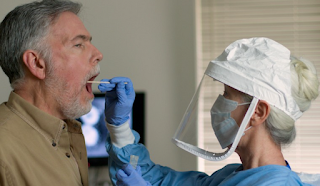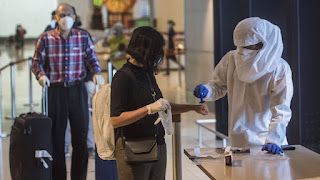COVID-19 Testing Guide: What You Need To Know Before Getting Tested
In just months, specialists have
been able to understand this infection enough to know how to identify its
presence with a simple test. With various types of testing alternatives
available, there are many inquiries that have come up about the accuracy of the
testing and it is important to get a travel covid test during travelling.
Diagnostic Testing
There are two different
diagnostic tests that are used to officially diagnose COVID-19 – molecular
testing and antigen testing:
- Molecular
testing (also called PCR tests). These tests include swabbing mucus from somewhere down in your nose or at the back of your throat. From that, the swab is sent off to a lab where it is analyzed for the virus’s unique genetic material. Molecular tests are the most accurate way to test for
COVID-19.
- Antigen
testing (also called rapid testing). Fast testing includes a similar swabbing process as the molecular test, but it doesn’t need to be sent off to laboratory equipment. This means you can get fit to travel antigen test results back sooner. Rapid testing
is the type of test you are more likely to get if you go to the drive-thru
testing sites.
What Do My COVID Test Results Mean?
As cases go up, testing sites are
incredibly busy. This means that delays in test results are incredibly normal.
If you are waiting for test results, behave as if you are positive for COVID.




Comments
Post a Comment